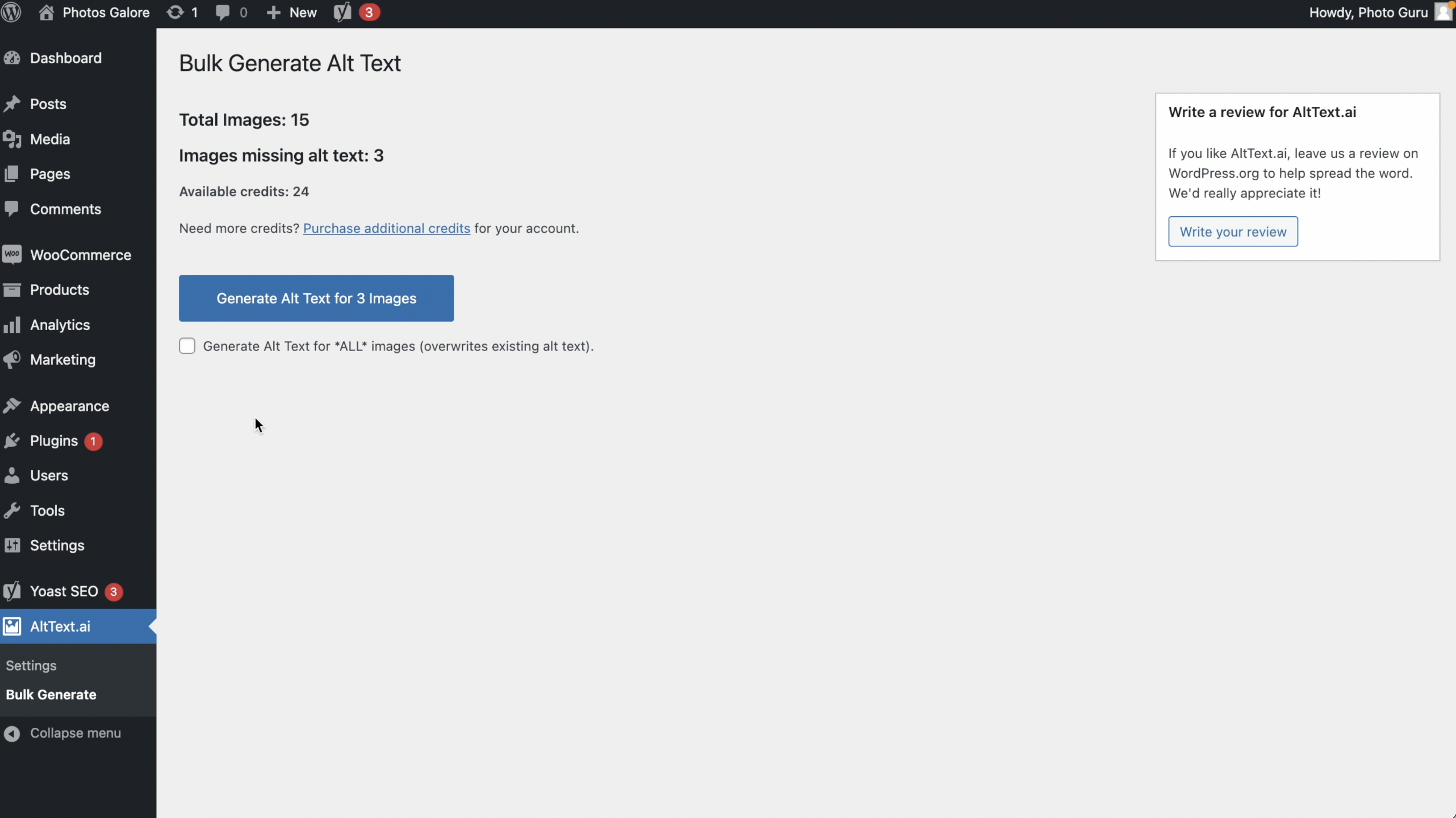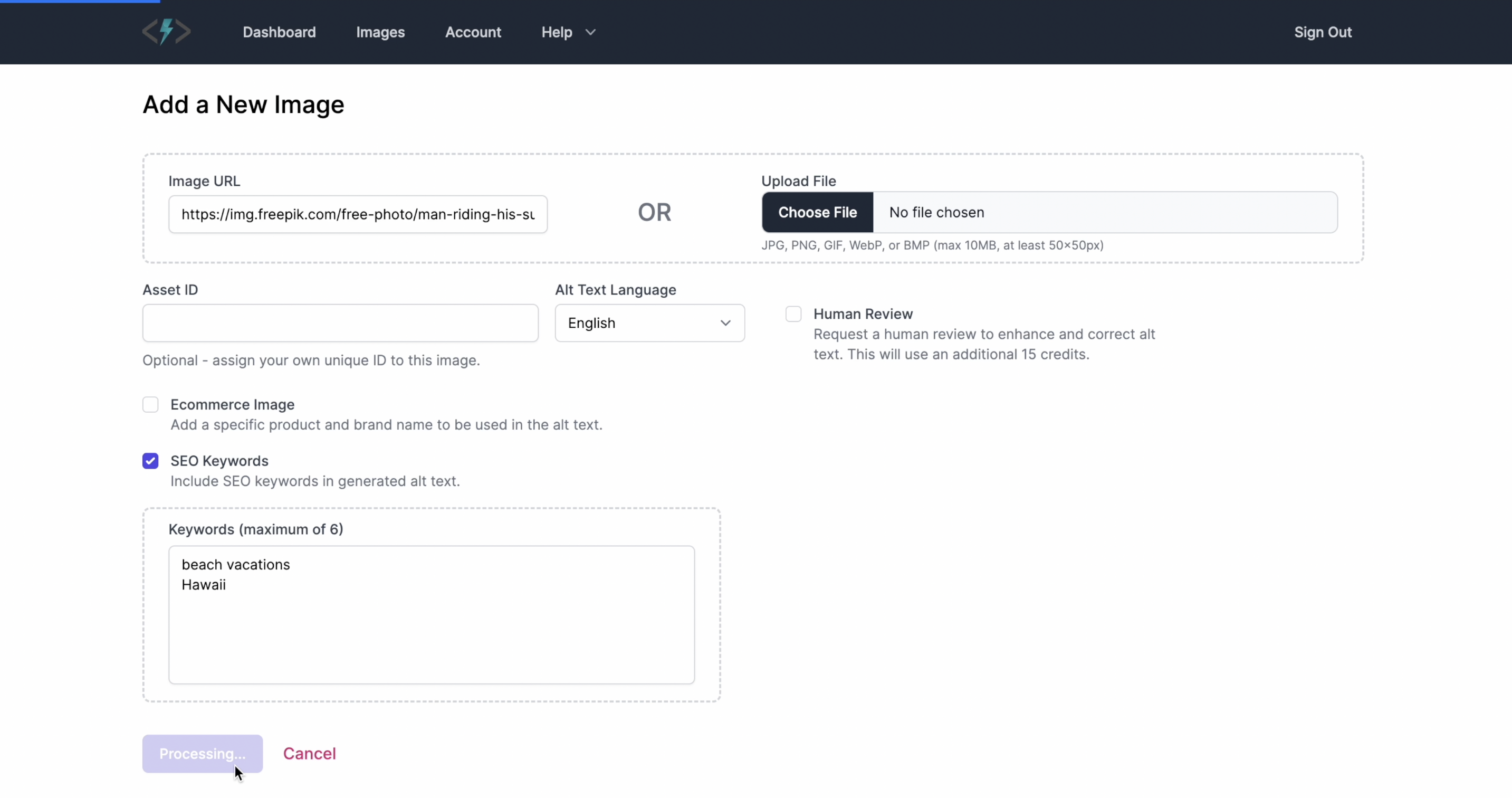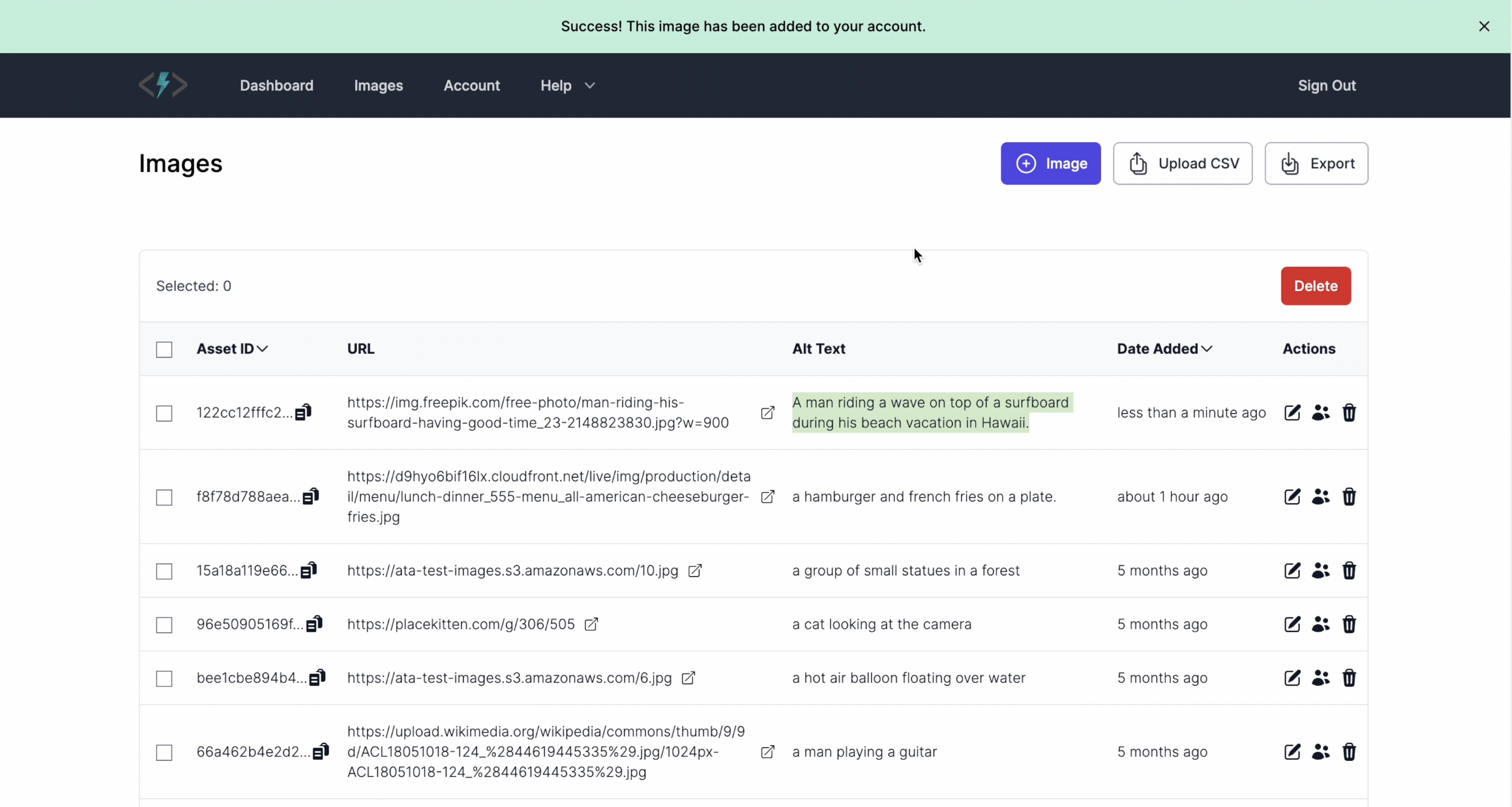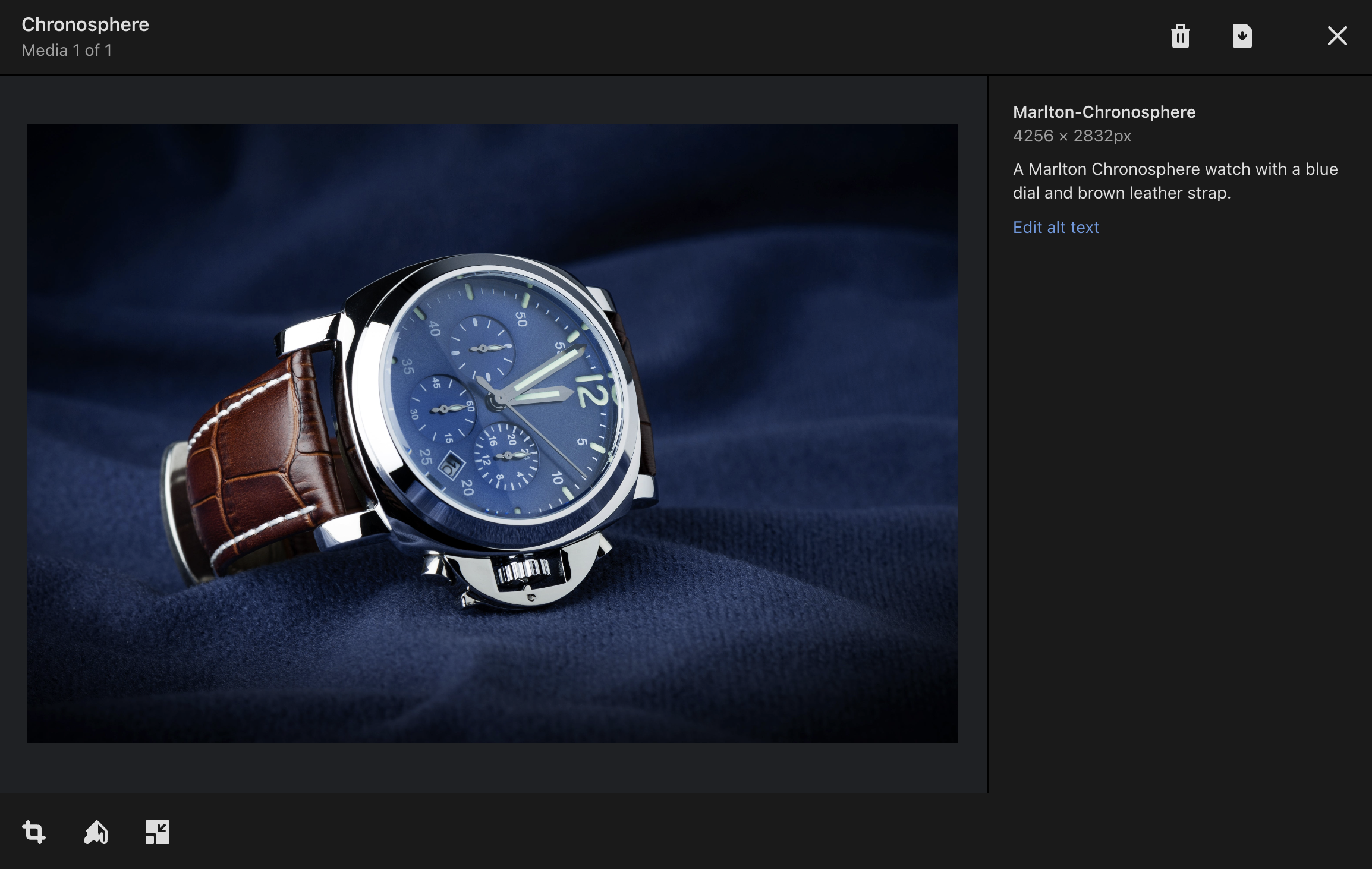Alt text. You know it’s important for SEO.
In fact, Google has stated that alt text is a ranking factor.
And with the increasing rise of visual search, describing your images for web crawlers has taken on even more importance.
But beyond a short sentence describing the image, how do you make your alt text even better?
Truth is, alt text is like any other part of SEO – it benefits from strategy.
This should be a strategy that not only makes your alt text more effective but also makes creating alt text easier and more automated so you have more time to focus on higher-level areas.
The more aligned you are in your keywords – in content, backlinks, and technical on-page components like alt text – the stronger your ranking potential.
You can enter your keywords manually, or a service like AltText.ai can integrate your keywords into AI-generated alt text.
What Is Alt Text?
First, let’s start with the basics.
Alt text is HTML code that describes what’s in an image. Screen readers use alt text to help those with vision impairments.
In addition, search engines use alt text to understand what’s on the page and how to index it.
Missing alt text is bad.
Any relevant alt text is better.
And SEO-optimized alt text is the best.
But how do we get there – without spending hours upon hours manually typing it?
Here’s how:
1) Methodically Prioritize, Update & Add Alt Text To Key Images
We know a lot of people who are in this boat: you have hundreds or even thousands of images without alt text.
You know you need it, but it’s such. A. Chore. Who has time for that?
No one, that’s who.
So, to make it easier, your first approach is to prioritize.
Add Alt Text To Your Most-Visited Pages
Go to your most-visited pages and manually enter alt text for those images.
You can work through your top 5, 10, 20 pages as you have time.
Use AI To Bulk-Update Alt Text
If you have many images, you might want to consider automating your alt text with AI.
A powerful tool like AltText.ai can bulk-update entire libraries of images in a fraction of the time a copywriter would need.
 Screenshot from AltText.ai’s WordPress plugin Bulk Generate tool, June 2023
Screenshot from AltText.ai’s WordPress plugin Bulk Generate tool, June 2023Best Results: Use This Hybrid AI & Manual Alt Text Approach
Then, there’s a hybrid approach — bulk update your alt text using AI, then go into your most popular posts and manually refine those.
AltText.ai has an optional human review feature if you’re short on time, but need the highest level of accuracy and confidence.
Furthermore, some images, like infographics, require extra time and effort to unpack.
By offloading simpler images to AI, you can devote time to the images that actually need that human touch.
2) Make Adding Alt Text A Routine
When it comes to uploading new images, you simply have to make alt text a part of your regular workflow.
There are two simple ways to do this:
- Implement an alt text checklist before a post goes live.
- Use an app or plugin that automatically generates alt text as images are added or updated.
Most CMS systems have a field for alt text, though some make it easier than others.
WordPress allows you to enter alt text from your media library or as you build your post.
Other sites, like Shopify, require you to go out of your way and click on your product photo.
Though many companies are working to improve their accessibility features (including making alt text entry more intuitive), you may need to familiarize yourself with your particular CMS.
AltText.ai simplifies this workflow by automatically generating alt text for you – all behind the scenes. It runs in the background and requires no extra steps from you.
AltText.ai integrations are currently available for WordPress, Shopify, Contentful, and Hygraph, in addition to a web interface and Developer API.
3) Use Alt Text To Provide Context & Keywords For Your Images
It’s not enough to just describe what’s in your image.
As important as alt text is, entering “cat” for a picture of your pet will never help you rank for [cat].
Instead, give your image context that informs Google of what you offer with as much specificity as possible.
Consider a photo of a *** air balloon.
“*** air balloon” is generic alt text that doesn’t really tell Google what your site is about or your value to users.
However, if you label your alt text “a *** air balloon over Napa Valley” or “*** air balloon and extra supplies for sale”, then along with additional info from your page, you reinforce to Google what you offer and to whom you should be shown.
This is also where keywords should come into play. You’ve probably spent a lot of time doing keyword research. Well, get the most out of it!
Definitely bake your keywords into your alt text.
4) Avoid Keyword Stuffing Your Alt Text
Yes, you should include keywords, but do so judiciously.
Keyword stuffing not only creates a bad user experience but may also come off as spammy to search engines.
Alt text should be:
- Grammatically accurate.
- A readable sentence or phrase that avoids excessive redundancies or descriptors that are unrelated to the image itself.
This is where your inner poet may need to come in because you want to weave your keywords in a natural, flowing way.
Oftentimes it’s better to just pick one or two keywords, rather than force them all in.
Remember, alt text is just one factor when it comes to search ranking. The most important thing is creating a high-quality, reputable page, and that means writing coherent and accurate alt text.
If you go the automated alt text route, AltText.ai will always balance keywords with the need to have real and non-spammy descriptive alt text. With the help of AI language ******, AltText.ai creates natural-sounding sentences by selecting the most relevant SEO keywords.
 Screenshot from AltText.ai, June 2023
Screenshot from AltText.ai, June 2023 Screenshot from AltText.ai, June 2023
Screenshot from AltText.ai, June 20235) Avoid Using Basic Alt Text Formulas
It can be tempting to use a standardized format and call it a day.
Say you have an ecommerce store and have the alt text template: “Product Brand” + “Product Name”.
This is certainly better than nothing, but is also very generic and doesn’t capture all the attributes that people might search for.
How To Structure Your Alt Text
Combine distinctive, important details with the basic product data.
If you sell a popular item, these extra details can give you an edge over your competitors.
Some common search terms you might want to mention include:
- Color.
- Special functions and designs.
- Materials used.
And here AI also has a benefit. If these features are visible in your product photo, AI computer vision can automatically detect and combine them with your product data.
This is a huge timesaver if you have a giant product catalog with too-basic alt text that doesn’t speak to the customer and what they might search for.
 Screenshot from AltText.ai’s Shopify app, June 2023
Screenshot from AltText.ai’s Shopify app, June 20236) Don’t Let Perfect Be The Enemy Of Good
Seriously.
Yes, alt text is valuable SEO real estate. Do you wish you could optimize profits on that real estate? Of course. But if you currently don’t have the bandwidth, try just getting something down.
According to John Mueller of Google’s “Search Off the Record” podcast, “If you’re just adding alt text for the first time, then sometimes, even any alt text is better than nothing.”
Why? From an accessibility standpoint, screen readers that encounter images without alt text may recite unhelpful (not to mention annoying) information, like the image’s alphanumeric filename. That makes for a terrible experience.
And from a SEO point of view, Google takes accessibility seriously and any oversight like lack of alt text may be counted as a ding against your site.
Source link : Searchenginejournal.com
